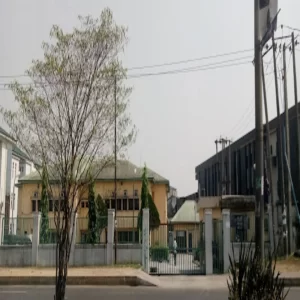Table of Contents
The Federal High Court in Port Harcourt, Rivers State, has scheduled a hearing for June 28 to address various motions in a case seeking the removal of Speaker Martins Amaewhule and other House of Assembly members.


These members, who have defected to the All Progressives Congress (APC), are facing legal challenges regarding the legitimacy of their positions following their defection.

Join our Telegram Channel for Updates
Speaker Martins Amaewhule and 24 other legislators are loyalists of Nyesom Wike, the former governor and current minister of the Federal Capital Territory (FCT).
The lawsuit, filed by the BOOT Party and other plaintiffs, is identified as suit number FHC/PHC/269/2024. The plaintiffs are requesting the court to declare the seats of Amaewhule and the other legislators vacant due to their defection from the Peoples Democratic Party (PDP) to the APC.
This case has been ongoing since December, with both the PDP and the APC seeking to join the legal proceeding.
Recently, the court was presented with a petition from Martins Amaewhule to Chief Judge John Tsoho, requesting the transfer of the case to another court.
Despite this petition, Justice Steven Dalyop Pam, the presiding judge, has decided to proceed with the hearing. Justice Pam read the petition in open court, noting Amaewhule’s request to halt the hearing and reassign the case to another court.
The legal tussle has drawn significant attention, with various stakeholders weighing in on the implications of the legislators’ defections. Okanlawon Gaffar, a lawyer, highlighted in an interview that no written documentation confirms that the lawmakers officially left the PDP. He argued that the situation is an example of over-judicializing Nigeria’s democratic processes.
The outcome of this legal battle could have far-reaching consequences for the pro-Wike lawmakers. The legal decision on whether to declare their seats vacant could impact their political careers and the balance of power within the Rivers State House of Assembly. The case underscores the complexities and legal challenges associated with political defections in Nigeria.
As the hearing date approaches, all parties will closely monitor the developments. The decision made on June 28 will be crucial in determining the future of the affected legislators and setting a precedent for similar cases in Nigerian politics.
This case continues to evolve, reflecting the intricate dynamics of political loyalty, legal interpretations, and democratic governance in Nigeria.









